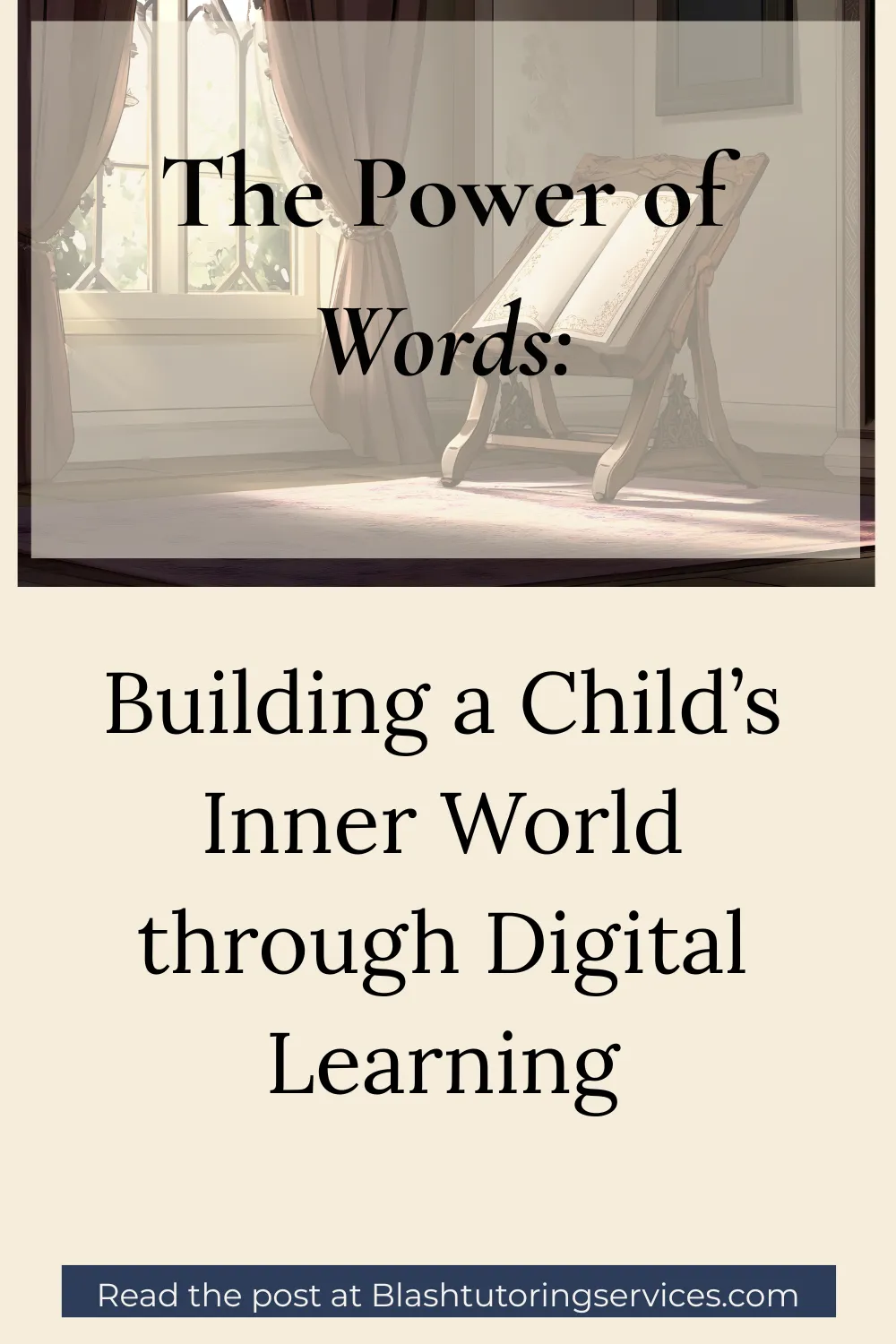
The Power of Words: Building a Child's Inner World through Digital Learning
How Digital Learning Shapes Thought and Language Development
Every thought a child forms begins with language. Words shape understanding, strengthen reasoning, and create the mental framework through which children view the world. In today’s digital age, digital learning, virtual learning tools, and online tutoring have expanded the ways children encounter language—making it easier than ever to support meaningful literacy growth.
Why Language Matters in Virtual Learning Environments
The stories children read, the conversations they hear, and even the digital tools they interact with all contribute to their inner world. Through digital learning platforms and online tutoring sessions, children receive exposure to rich vocabulary, expressive language, and structured literacy support that helps deepen their thinking.
Quality language—whether delivered through print, audio, or digital platforms—shapes character and imagination. Digital learning tools enhance this experience with features such as interactive vocabulary practice, read-aloud narration, and visual supports that strengthen comprehension.
Classic literature like The Chronicles of Narnia or A Wrinkle in Time, accessed through ebooks or online libraries, introduces children to stories filled with beauty, depth, and moral imagination. High-quality language forms the foundation for thoughtful, reflective learning.
“The entrance of Your words gives light; it gives understanding to the simple.” — Psalm 119:130 NKJV

Explore how good stories become anchors of faith and moral imagination in A Legacy of Light.
The Creative Power of Words in Digital Learning Spaces
“Then God said, ‘Let there be light’; and there was light.” — Genesis 1:3 NKJV
Just as God used words to create, children use language to shape their understanding and imagination. Through digital learning tools, online read-alouds, and virtual lessons, children encounter words that influence what they believe, how they interpret the world, and what they value.
Virtual learning supports parents in providing access to meaningful stories that teach truth, character, courage, and beauty. Whether on a screen or through a book, the quality of language remains essential.
You can read more about nurturing imagination in my post, Planting Seeds of Faith: Forming Character in Children Through Quality Literature.
Strengthening Reading Skills Through Online Tutoring and Digital Tools
Reading aloud—both in person and through digital story platforms—introduces children to language patterns beyond their natural reach. Even older learners benefit from the rhythm and expression of spoken language.
“Living books,” available through online libraries and digital collections, ignite imagination and deepen comprehension. When paired with online tutoring or virtual reading support, these texts help children grow academically, emotionally, and spiritually.
Digital tools like Storyline Online are valuable enhancements to home learning. They expose children to expressive reading while supporting vocabulary, fluency, and comprehension. These tools are not replacements for parental involvement—they are powerful additions
Parent-Led Discussion in a Virtual Learning World
After reading—whether digitally or traditionally—discussion cements learning. Parents can guide reflection with simple questions such as:
- “What stood out to you in this story?”
- “What lesson do you think the author wanted you to understand?”
- “Why do you think the character made that choice?”
Meaningful discussion helps children process language and internalize what they’ve learned. In an online tutoring environment, these reflective conversations further strengthen comprehension and critical thinking.
“Death and life are in the power of the tongue.” — Proverbs 18:21 NKJV
Building Hearts and Minds Through Digital Learning and Online Tutoring
Digital learning tools, virtual lessons, and online tutoring work together to create a rich, language-centered foundation for growth. These resources help children develop confidence, literacy skills, imagination, and character.
If you want support in nurturing your child’s learning through digital and virtual tools, I would love to walk alongside your family. Together, we can create a learning plan that supports academic success, spiritual formation, and a lifelong love of language.
Click below to schedule time with me and explore how digital learning and online tutoring can enrich your child’s world.
💬 Click here to schedule your free consultation.
Click the link below to download a free list of books that you can enjoy with your family.

